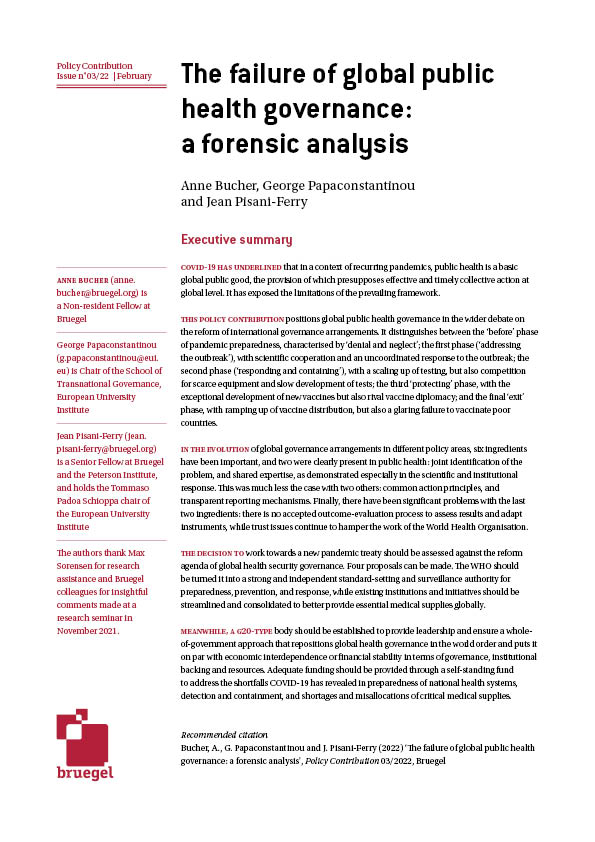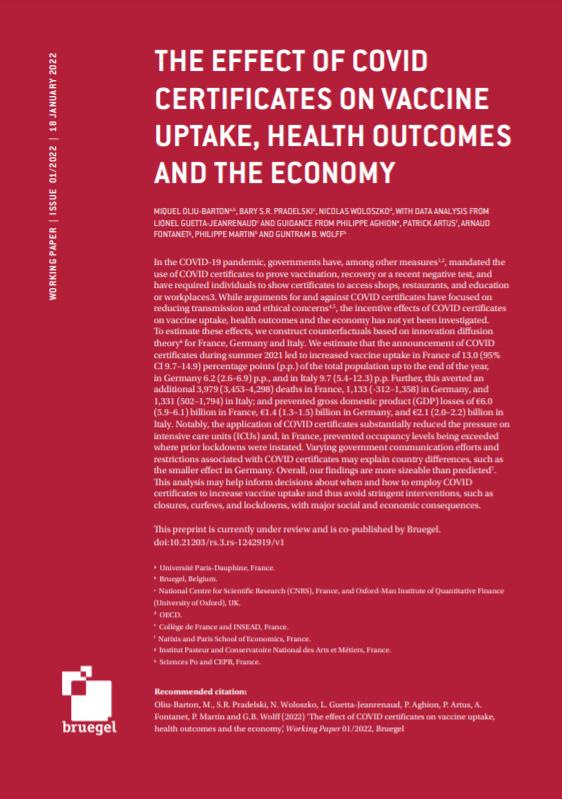Opinion
An equity fund for a zombie-free and EU-wide recovery
Four guiding principles can help ensure a well designed EU equity fund.
Illuminated open signs are going out all over Europe, some will not be lit again in our life-time. Many however will reignite, but only thanks to last-minute acts of life-saving economic engineering. But without careful attention, today’s rescuers could become the inadvertent architects of tomorrow’s ruin. Why might this happen and what can we do to stop it?
As Europe recovers from the peaks of the Coronavirus pandemic, policymakers who shut down heaven and earth to contain the virus must now move mountains to save the economy. Governments initially rushed to keep firms afloat, mostly by providing loans. But, with spiraling debts abound, government loans may not be enough to keep companies solvent and equity (part-ownership) is now on the table.
Moving from the first emergency phase onto the next is not simply a matter of tweaking the medicine. Generous and indiscriminate state support, allowed under the relaxed EU state aid rules, was the right approach initially. But the cost of such support is enormous, and not just for taxpayers. With equity, these concerns aggravate.
For one thing, equity can be more distortionary than other types of aid–the value being hard to assess, especially in uncertain times. At the extreme, we could emerge from the crisis with a wrecked single market, with only the most-subsidised companies left standing–a nightmarish world in which inefficient zombie firms feed on beleaguered taxpayers.
Is this the dawn of the nearly dead? Not necessarily. There are four principles to consider how and under what conditions support should be given.
First, only financially viable firms should receive solvency support, with viability assessed considering both the past and the future. The crisis will alter consumer preferences and production systems. Public resources must focus on firms with business models that are expected to be viable in the post-crisis economy. Rescue plans shouldn’t preserve pre-crisis industrial structures. The key question is who could make such assessments. Since many of the variables for assessing financial viability relate to business choices and models, we do not think that governments should be the main decider.
Second, state support should not undermine competition between firms in the EU’s single market. One of the EU’s main strengths is its well-functioning single market. Fair competition across borders ensures that the most innovative and productive firms thrive, rather than those that receive the most state support. Because some of the rescued companies have production sites in many countries, state support does have positive cross-borders effects. But if state support lasts too long and supported companies abuse the support to embark on predatory purchases, then competition and the level-playing field is endangered.
Third, state interventions should support broader societal goals, from climate neutrality to social cohesion. Cash injections, in the form of loans or equity must accelerate the changes required to achieve them–not run counter to them. The real question in Europe is who can define such societal goals. Clearly, Europe should avoid agreeing only on the lowest common denominator. Instead, countries need to empower the Commission to drive the strategy. And the European Parliament has to set a clear political direction.
Fourth, taxpayers should receive their share in the rewards of the recovery. Interventions must be framed as worthy public investments, not expensive bailouts. The public share can come in the form of either ownership rights (i.e. silent shareholders without voting rights to limit distortionary effects) or in the form of non-ownership based claims on future profits. In the case of ownership rights, some degree of ownership dilution is necessary. Indeed, it would be unacceptable if massive amounts of public money did nothing more than protect existing shareholders.
These four principles suggest the creation of a large EU equity fund to directly invest in weakened firms. Such a fund would make it easier to design support in a way that strengthens the single market while preserving our societal goals. It could also ensure that taxpayers receive their share in the recovery profits while reducing the politically delicate issue of cross-border transfers. The success of these interventions will depend on policy makers’ craftsmanship. But solutions are only as good as the principles they follow. As the Chinese proverb goes, a bad beginning leads to a bad ending.
Republishing and referencing
Bruegel considers itself a public good and takes no institutional standpoint.
Due to copyright agreements we ask that you kindly email request to republish opinions that have appeared in print to [email protected].














